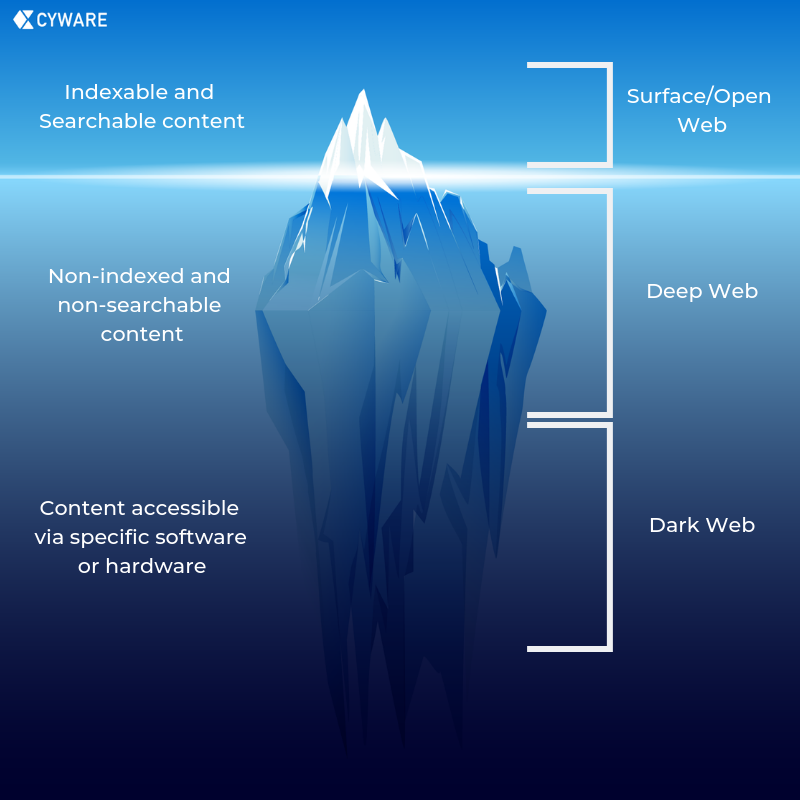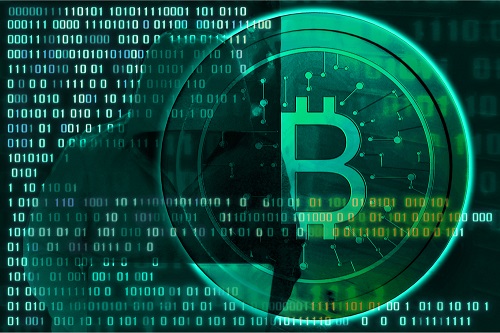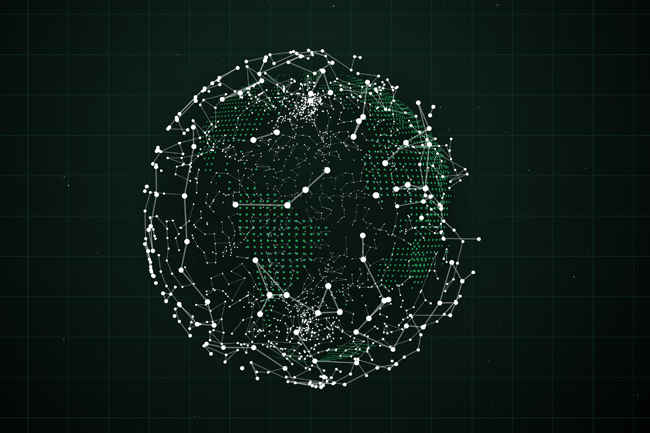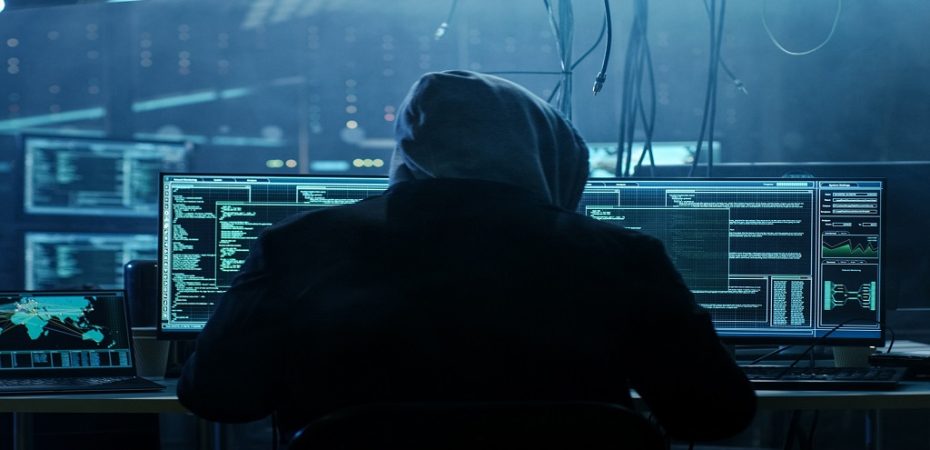The internet is a vast network of information accessible to anyone with an internet connection. However, beneath the surface lies a hidden part of the internet known as the Dark Web. In this article, we will explore the mysterious world of the Dark Web, its workings, legal implications, security measures, marketplaces, and much more. So, fasten your seatbelts as we dive into the depths of the internet most people have never seen.
What is the Dark Web?
The Dark Web is a part of the internet that is intentionally hidden and not indexed by search engines. It exists on encrypted networks, requiring special software and configurations to access. Within the Dark Web, users can browse websites and communicate with a high degree of anonymity.
How Does the Dark Web Work?
The Dark Web operates using overlay networks, such as Tor (The Onion Router), I2P (Invisible Internet Project), and Freenet. These networks anonymize internet traffic by routing it through multiple layers of encryption and relays. This multi-layered approach makes it challenging to track users’ activities and locate the physical servers hosting Dark Web content.
Dark Web vs. Deep Web

It is crucial to differentiate between the Dark Web and the Deep Web, as they are often mistakenly used interchangeably. While the Dark Web refers to the intentionally hidden part of the internet, the Deep Web includes all web pages that are not indexed by search engines. This includes private databases, subscription-based content, academic resources, and more.
Common Misconceptions About the Dark Web
There are several misconceptions surrounding the Dark Web that contribute to its notorious reputation. It is essential to debunk these myths and gain a clearer understanding of what the Dark Web truly represents.
Is it Legal to Access the Dark Web?
Accessing the Dark Web is not illegal in most countries. However, engaging in illegal activities while using the Dark Web is a different matter. It is crucial to understand the legal implications and exercise caution while navigating this hidden realm.
Popular Dark Web Marketplaces
Dark Web marketplaces have gained significant attention due to their association with illicit activities. These marketplaces facilitate the buying and selling of various goods and services, including drugs, weapons, counterfeit money, stolen data, and more. Some well-known examples include…
The Silk Road: Rise and Fall
The Silk Road was one of the most infamous Dark Web marketplaces, known for its role in facilitating the anonymous trade of drugs. This section explores the rise, operation, and ultimate downfall of the Silk Road, shedding light on the impact it had on the Dark Web ecosystem.
Exploring the Dark Web Safely
While the Dark Web may seem intimidating, it is possible to explore it safely by following specific precautions. This section provides valuable tips and guidelines for users who wish to venture into the Dark Web without compromising their safety and privacy.
Dark Web Privacy and Security Measures
Privacy and security are paramount when accessing the Dark Web. This section delves into the measures users can take to protect their identities, safeguard their personal information, and ensure a secure browsing experience.
Cryptocurrency and the Dark Web

Cryptocurrencies, such as Bitcoin, play a significant role in Dark Web transactions. This section examines the relationship between cryptocurrency and the Dark Web, explaining why digital currencies have become the preferred medium of exchange on these hidden platforms.
Dark Web Threats and Criminal Activities
The Dark Web is not without its risks. This section sheds light on the various threats and criminal activities associated with the Dark Web, including hacking, identity theft, illegal marketplaces, cyber warfare, and more.
Dark Web and Cybersecurity
The Dark Web has implications for cybersecurity at both the individual and organizational levels. This section explores the challenges posed by the Dark Web and the measures required to enhance cybersecurity defenses against potential threats originating from this hidden realm.
Dark Web and Anonymous Communication Tools
Anonymous communication tools are instrumental in maintaining privacy and anonymity on the Dark Web. This section discusses some of the widely used tools and protocols employed by Dark Web users to communicate without revealing their identities.
Dark Web and Whistleblowing
The Dark Web has also become a platform for whistleblowing, enabling individuals to expose corruption, misconduct, and other forms of wrongdoing. This section examines the role of the Dark Web in facilitating secure and anonymous whistleblowing activities.
Dark Web and Government Surveillance
Governments around the world are actively monitoring the Dark Web to identify and combat criminal activities. This section explores the relationship between the Dark Web and government surveillance, discussing the implications for privacy, civil liberties, and the balance between security and freedom.
The Future of the Dark Web

As technology evolves, so does the Dark Web. This section provides insights into the potential future developments of the Dark Web, including emerging technologies, trends, and challenges that may shape its landscape.
Frequently Asked Questions (FAQs)
1. What is the difference between the Dark Web and the Deep Web?
The Dark Web and the Deep Web are often confused, but they represent different aspects of the internet. While the Dark Web refers to the intentionally hidden part of the internet, the Deep Web encompasses all unindexed web pages, including private databases, academic resources, and more.
2. Can I access the Dark Web using a regular web browser?
No, accessing the Dark Web requires special software such as Tor, I2P, or Freenet. These tools anonymize your internet traffic and enable access to Dark Web websites.
3. Is it illegal to browse the Dark Web?
Browsing the Dark Web itself is not illegal in most countries. However, engaging in illegal activities while using the Dark Web is a different matter and can have legal consequences.
4. Are there any legitimate uses for the Dark Web?
While the Dark Web is associated with illicit activities, there are legitimate use cases as well. For example, journalists and activists may use the Dark Web to communicate securely and protect their identities.
5. How can I protect my privacy while accessing the Dark Web?
To protect your privacy while accessing the Dark Web, it is recommended to use a combination of security measures, such as using a VPN, disabling JavaScript, and refraining from sharing personal information.
6. What are some popular Dark Web marketplaces?
Some popular Dark Web marketplaces include…
7. Can I get caught while accessing the Dark Web?
While the Dark Web provides a certain degree of anonymity, it is not foolproof. Law enforcement agencies employ various techniques to track down individuals involved in illegal activities on the Dark Web. Therefore, caution and adherence to security measures are crucial.
8. How does cryptocurrency play a role in Dark Web transactions?
Cryptocurrencies, such as Bitcoin, are commonly used on the Dark Web due to their decentralized and pseudonymous nature. They allow for secure and relatively anonymous transactions, making them a preferred medium of exchange.
9. What are some risks associated with using the Dark Web?
Using the Dark Web carries risks, including exposure to malware, scams, hacking, and encountering illegal content or marketplaces. It is essential to exercise caution and take necessary precautions while navigating this hidden part of the internet.
10. Is the Dark Web monitored by law enforcement agencies?
Yes, law enforcement agencies actively monitor the Dark Web to identify and apprehend individuals involved in illegal activities. However, the decentralized nature of the Dark Web poses challenges to effective surveillance.
11. What steps can I take to enhance my cybersecurity on the Dark Web?
To enhance your cybersecurity on the Dark Web, it is recommended to use secure communication tools, keep software up to date, employ strong passwords, enable two-factor authentication, and exercise caution when interacting with unknown entities.
12. What are some anonymous communication tools used on the Dark Web?
The Dark Web utilizes various anonymous communication tools, such as Tor, I2P, and secure messaging protocols like Signal and Jabber. These tools help maintain privacy and anonymity while communicating on the Dark Web.
13. Can the Dark Web be used for whistleblowing?
Yes, the Dark Web provides a platform for secure and anonymous whistleblowing. Individuals can share sensitive information without revealing their identities, enabling them to expose corruption and misconduct while minimizing the risk of retaliation.
14. How does government surveillance impact the Dark Web?
Government surveillance of the Dark Web has implications for both privacy and civil liberties. While surveillance aims to identify and combat criminal activities, it also raises concerns about the erosion of privacy and the potential for abuse of power.
15. What can we expect in the future of the Dark Web?
The future of the Dark Web is shaped by advancements in technology, emerging trends, and evolving cybersecurity measures. As privacy concerns persist and new technologies emerge, the Dark Web will likely continue to evolve and adapt.
Conclusion
The Dark Web remains a mysterious and enigmatic part of the internet, harboring both legitimate uses and illicit activities. While it offers anonymity and privacy to its users, it also poses significant risks and challenges. Understanding the Dark Web is crucial in navigating the complexities of the digital world we inhabit. So, tread cautiously, protect your privacy, and remember to explore the internet responsibly.
Read Also

